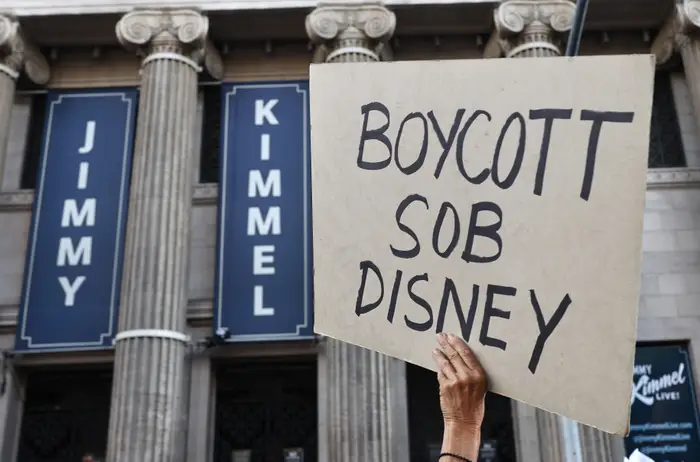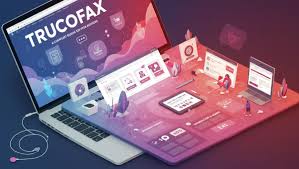Boycotting Disney: The Powerful Consumer Backlash Behind Canceled Subscriptions

In today’s digital age, where streaming platforms dominate family entertainment, Disney has long held a special place in people’s hearts. From childhood classics to blockbuster Marvel and Star Wars franchises, Disney’s storytelling empire has defined entertainment for generations. But in recent years, a growing number of people are no longer applauding the brand. Instead, they’re turning away, canceling subscriptions, and boycotting Disney. For these consumers, it’s not just about entertainment—it’s about values, money, and the power of collective choice.
This movement has been summed up by a phrase echoing across online discussions: “We vote with our dollars.” Let’s explore why so many are choosing to vote against Disney, what this boycott means, and how it reflects broader shifts in consumer behavior.
The Rising Wave of Discontent
Boycotting Disney has become more than just a social media trend; it’s a response to multiple factors that have left many feeling frustrated with the company. While the reasons vary from person to person, several common themes emerge.
1. Political and Cultural Stances
Disney has become increasingly vocal about its positions on social and political issues. While some applaud the company for taking a stand, others feel alienated. Certain groups believe Disney has strayed too far from its original mission of creating family-friendly content, accusing the company of pushing political agendas into children’s entertainment.
This has sparked debates and, for many, the decision to stop supporting the brand financially. To these consumers, canceling their Disney+ subscription is their way of making their voices heard.
2. Rising Costs of Streaming Services
Disney+, like many streaming platforms, has raised its subscription fees over time. Combined with inflation and economic uncertainty, families are reevaluating their monthly expenses. For some, cutting Disney+ is simply a financial decision. For others, it feels like a chance to make both a financial and ethical statement at the same time.
3. Perceived Decline in Content Quality
Another reason fueling the boycotting Disney trend is dissatisfaction with its recent content. Some viewers argue that sequels, remakes, and spin-offs lack the originality and magic of earlier works. Others feel newer projects prioritize messaging over storytelling, leaving audiences uninspired.
When people pay for entertainment, they expect value—and when that expectation isn’t met, canceling becomes an easy choice.
“We Vote with Our Dollars”: The Power of Consumer Choice
The phrase “we vote with our dollars” captures a simple yet powerful idea: every purchase is a form of approval. By spending money, we endorse not just a product but also the values, policies, and actions of the company behind it.
When people stop buying Disney merchandise or cancel their Disney+ subscription, they’re sending a clear message: “We don’t agree, and we won’t pay.” Unlike elections, which happen every few years, consumer voting happens every day—and companies notice.
In fact, corporations pay close attention to subscriber numbers, sales figures, and market trends. A dip in subscriptions doesn’t just affect profits—it forces leadership to rethink strategies, content choices, and brand direction.
The Broader Trend of Brand Accountability
Boycotting Disney isn’t an isolated event. In recent years, we’ve seen similar consumer-driven movements against other major brands. Whether it’s due to political stances, ethical concerns, or pricing changes, customers are more willing than ever to walk away when they feel unheard.
This trend reflects a cultural shift: people want brands to align with their values. And if a brand fails to meet those expectations, customers know they have plenty of alternatives. For families, canceling Disney+ might mean switching to Netflix, Amazon Prime Video, or even smaller niche platforms that better reflect their values or entertainment preferences.
The Emotional Connection at Stake
What makes boycotting Disney especially impactful is the emotional connection people have with the brand. For decades, Disney has represented nostalgia, innocence, and imagination. For many families, Disney movies are tied to cherished childhood memories and traditions.
When loyal fans decide to step away, it’s not just about canceling a subscription—it feels like breaking up with a longtime friend. This emotional weight makes the boycott even more significant. It suggests that for some people, the frustration with Disney outweighs even their fondest memories of the brand.
The Business Impact of Boycotting Disney
So, what does all this mean for Disney as a corporation?
- Subscription Losses: A decline in Disney+ subscribers directly impacts revenue and investor confidence. Wall Street pays close attention to these numbers, and consistent drops can trigger stock price fluctuations.
- Merchandise and Park Revenue: Boycotting doesn’t stop with streaming. Some consumers extend it to merchandise, theme parks, and movie tickets. This multiplies the financial pressure.
- Brand Reputation: Once trust and goodwill are lost, it’s hard to win them back. Boycotts often spark public debates that amplify criticism and force companies into the spotlight—sometimes in ways they’d rather avoid.
- Strategic Adjustments: If boycotting Disney continues to gain traction, executives may be pushed to adjust their content strategy, marketing messages, or pricing models.
Will the Boycott Last?
Like many consumer movements, the longevity of boycotting Disney depends on two factors: the company’s response and the persistence of consumer frustration. Some boycotts fade quickly as people return to convenience and nostalgia. Others reshape corporate strategies for years to come.
If Disney chooses to address concerns—whether through adjusting prices, creating more original content, or dialing back divisive messaging—it may win back some customers. But if the company doubles down on its current path, the boycott could continue to grow.
A New Era of Consumer Power
The Disney boycott is just one chapter in a larger story: the rise of consumer activism in the digital age. Social media amplifies individual voices, turning small frustrations into global conversations. Platforms like Twitter, TikTok, and YouTube allow everyday people to influence brand reputations in ways unimaginable a decade ago.
For companies, this means greater accountability. For consumers, it means greater power. And for Disney, it means that the once-unshakable loyalty of its fanbase is no longer guaranteed.
Conclusion: Boycotting Disney as a Wake-Up Call
Boycotting Disney is about more than canceling a subscription—it’s about consumers realizing the power they hold. By choosing where to spend or withhold their money, people are shaping the future of entertainment and corporate culture.
For some, this movement is about rejecting rising prices. For others, it’s about cultural values or disappointment with content. But together, it sends a message that no brand, no matter how beloved, is too big to be held accountable.
As consumers continue to “vote with their dollars,” companies like Disney face a clear choice: adapt to what audiences want or risk losing the magic that made them a household name in the first place.


